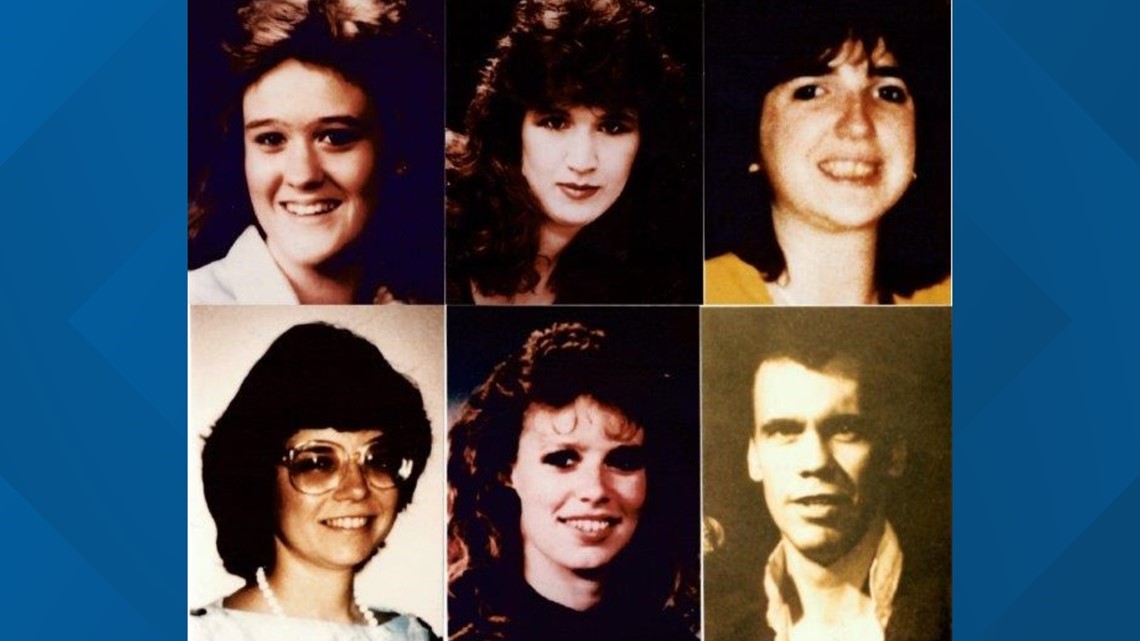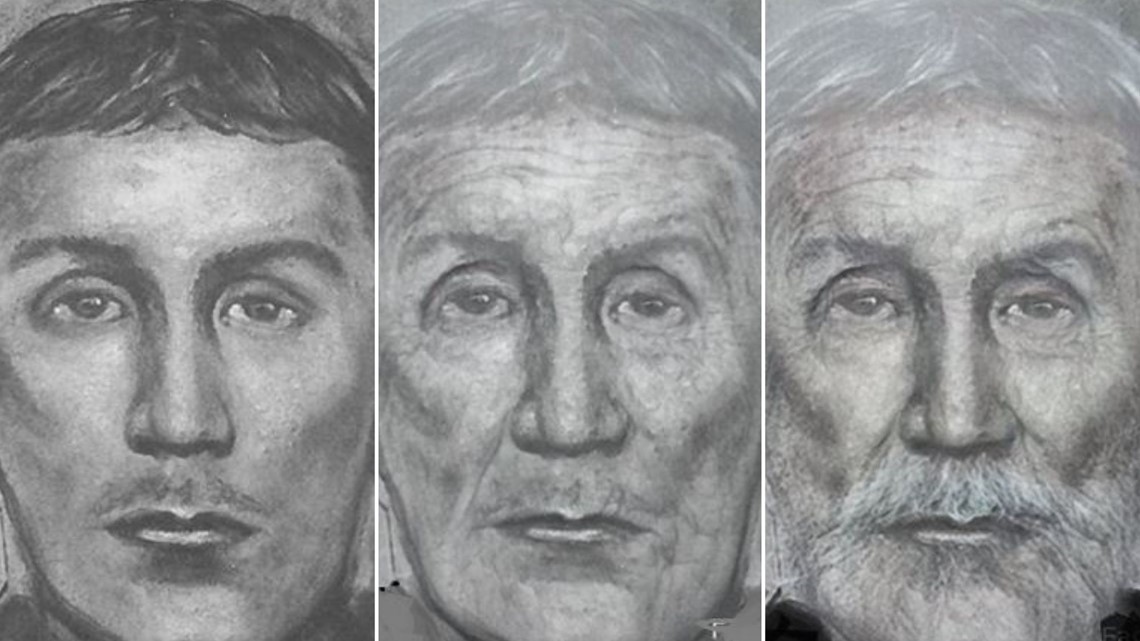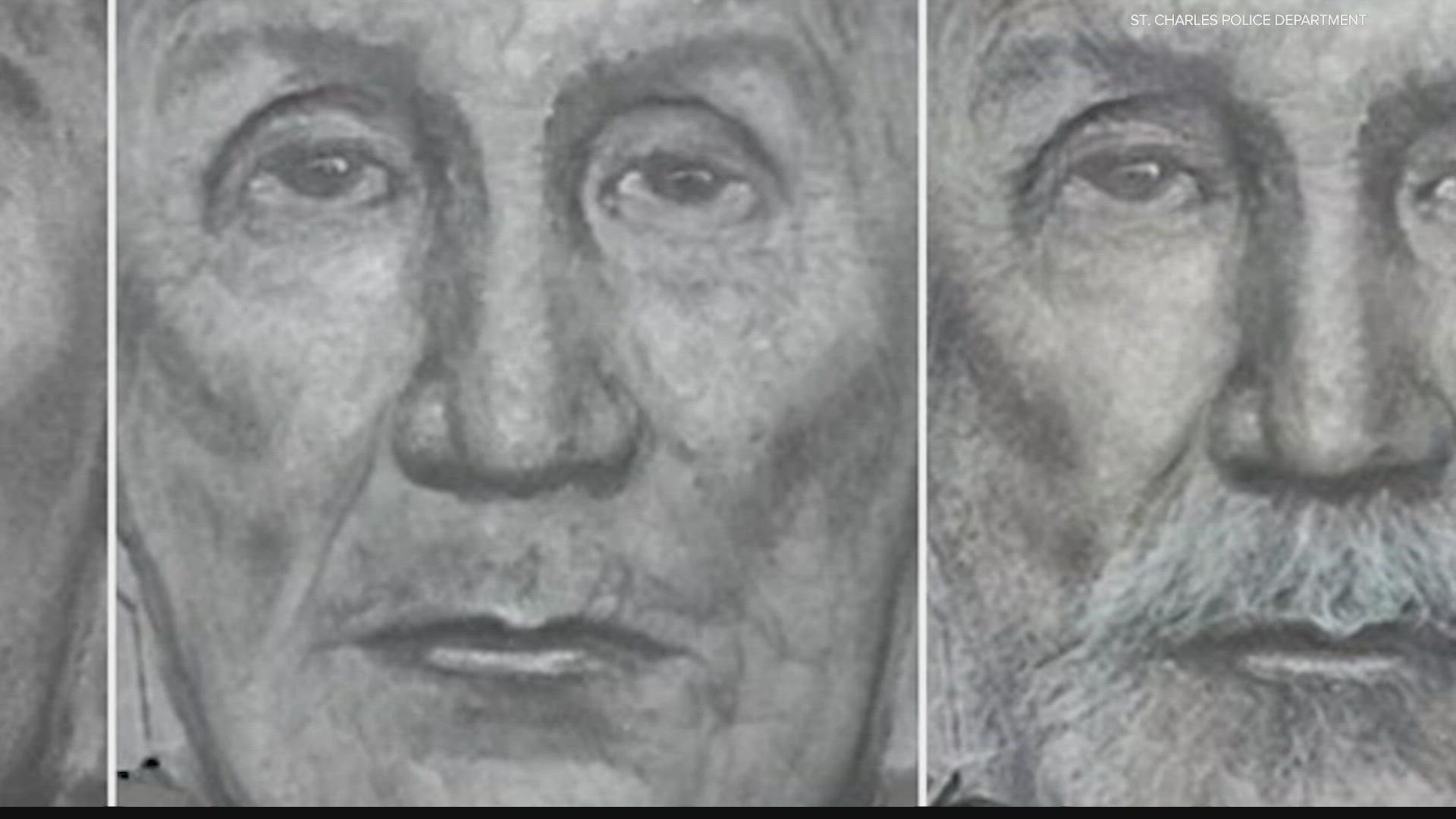ST CHARLES, Mo. — Detectives from Indiana are joining officials from other states terrorized by the I-70 Killer, to try and bring a murderer who has gotten away with it for 29 years to justice.
In April 1992, an unknown man launched a 29-day killing spree from the city of Indianapolis. He moved along a 1,200-mile stretch of road between Wichita, Kansas and Indianapolis, mostly targeting brunette women, and ending the lives of six store clerks in the process.
The identity of the killer is still unknown.
Terre Haute Detective Bradley Rumsey said this is not the I-70 Killer Task Force that's been assembled since 1992.
While he said they are not meeting because of new breaks in the case, fresh eyes on old information could provide valuable insights.
"You get a new set of eyes on cases, that maybe weren't on the case the last time the task force met. Maybe we've observed something within the case file that needs brought to the attention of the task force, so that it can be looked at maybe a little more closely," he said.
The I-70 Killer's first victim was Indianapolis resident Robin Fuldauer, a 26-year-old working alone at a Payless shoe store.
She was shot to death, the I-70 Killer's preferred method of murder. Two detectives with the Indianapolis Metropolitan Police Department are working Robin Fuldauer's case.


What happened to the I-70 Killer's lone male victim, Terre Haute resident Michael McCown, is a mystery Rumsey is working to solve.
McCown was working at his mother's ceramics store when he was shot. While police previously said they believe the killer mistook McCown's long brown hair as belonging to a woman, Rumsey is working to keep an open mind.


"You got to consider too - maybe that had nothing to do with it all. Maybe he just picked him because he knew the man was alone in there and he thought, 'You know, I'm safe, I can go and do this, and no one can see me,'" Rumsey said.
This case, he reiterated, is far from cold.
"People are going to see your news story, and are going to see a 30-year-old case and think, 'My God, that was 30 years ago, who cares.' But the reality is, just two weeks ago, I sat in the kitchen of a house in Terre Haute talking to [McCown's] sister, and she's still destroyed by this. And it still matters to her, and it still matters to his half-sister. They care deeply about the case and they really want it solved," he said.
RELATED: I-70 Killer: New sketches of suspected murderer who began killing spree in Indianapolis released
Rumsey was not with the Terre Haute police force when the I-70 killings happened. This is his first serial killer case, and he said cross-country collaboration between different jurisdictions is crucial to a successful outcome.
"With different jurisdictions, you have different capabilities, right? So Indianapolis, for instance, you have a larger number of homicides in that jurisdiction than you have in Terre Haute or Wichita. So, you have people that have abilities maybe far above or far below what other investigators might have. A fantastic idea is to get us all together so we can bounce ideas off of each other," he said.
While Rumsey could not go into specific evidence, advancements in technology will likely play a central role in the discussions between officials.
At the end of October, police released new age-enhanced photos of the suspected serial killer, who authorities now think is between the ages of 52 and 70 years old. At the time of the murders, they believe the suspect was in his twenties.
In the nearly thirty years it takes a person to grow from a boy to a man, new technologies have developed that could help close the case.


Rumsey pointed specifically to advancements in the DNA field.
"The technology was really in its infancy in the early 90s and wasn't used very often for police work. If there's evidence in the case where there is DNA believed to be present, and if we believe it's a small amount of DNA, it's very likely that testing it today versus then we're more likely to get a result that's favorable to the case as compared to 1992-93 timeframe," he said.
The I-70 Task Force is meeting in St. Charles, Missouri Nov. 2-3. Representatives from the FBI and ATF are also in attendance.

